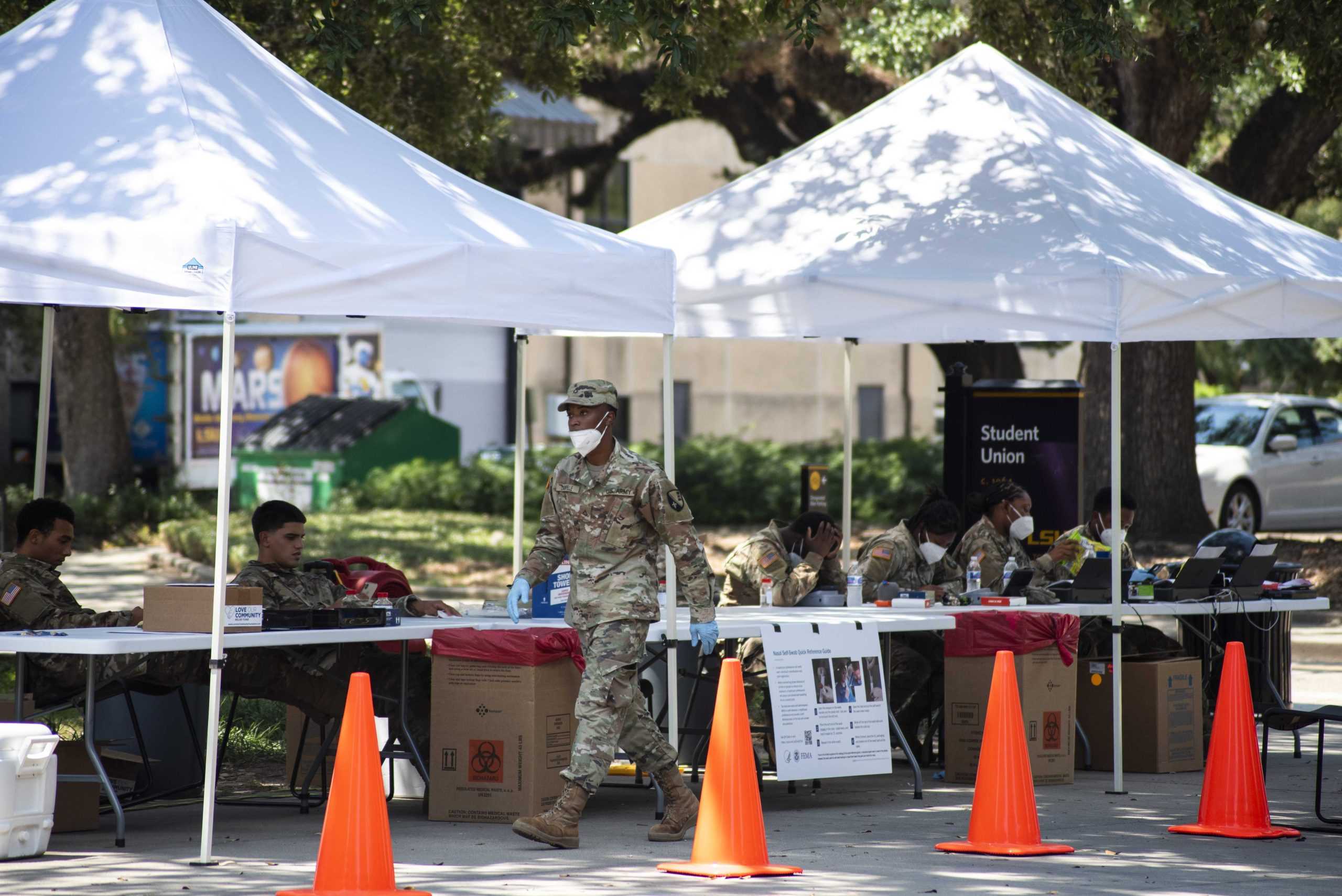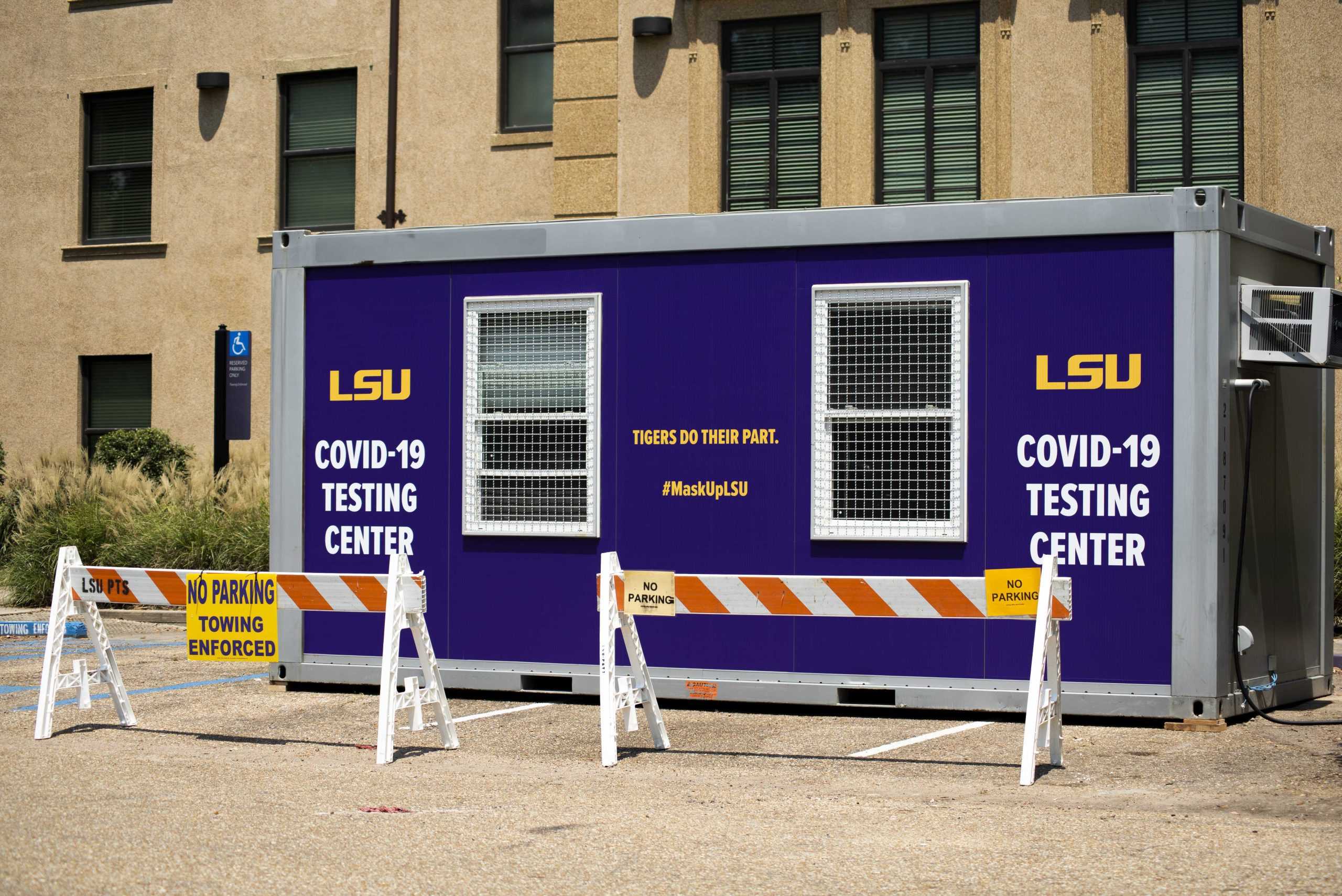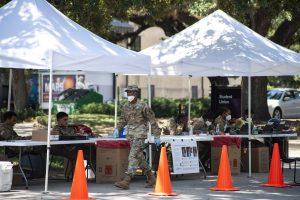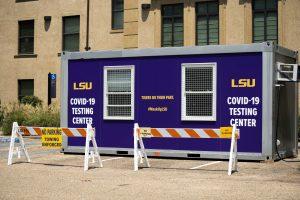LSU student leaders signed a letter requesting that the University mandate monthly COVID-19 testing.
The letter was signed by over 50 student organizations as well as Student Body President Stone Cox and Vice President Hannah Barrios. The mandatory testing would allow student organizations to hold larger events on campus.
Although Gov. John Bel Edwards moved Louisiana into Phase 3 on Sept. 11, the guidelines outlined by LSU’s Roadmap to Fall remain unchanged.
The University still limits on-campus gatherings to 50 people, and any in-person event with over 10 people requires approval. Moving into Phase 3 would allow student organizations to host events with up to 250 people.
“The presidents and leaders of the organizations below agree Louisiana State University should begin monthly mandatory testing for all students, so we can safely transition into Louisiana’s Phase 3,” read the letter.
Dr. Deborah Birx, response coordinator for the White House Coronavirus Task Force, said she felt uncomfortable recommending LSU move into Phase 3 due to low testing numbers on campus.
Since then, Interim President Thomas Galligan asked students to get tested monthly and said he has considered University-wide mandatory testing.
Cox and Barrios said increased testing could allow the University to move into Phase 3 along with the rest of the state.
“The ultimate goal is to increase our testing numbers so we can make safer decisions about where we need to be on campus, and there’s a bunch of different ways we can get there,” Cox said. “Mandatory testing and certain styles of mandatory testing are how we could potentially do that.”
He also said it would potentially allow students living on campus to have guests, which is currently prohibited.
Cox and Barrios said students who have all online classes and haven’t been on campus this semester would be exempt from testing.
Cox said LSU could implement mandatory testing by requiring students to test negative before attending a Phase 3 event with more than 50 people.
Some universities require students to test negative before they are able to access buildings on campus, another method Cox said was a possibility.
Only 6% of colleges with in-person classes and more than 5,000 undergraduates are routinely testing all of their students, according to data analyzed by NPR.
Barrios acknowledged increased testing could reveal too many cases on campus and interfere with plans to move into Phase 3.
“We obviously wouldn’t want to move forward if we had a high number of cases on campus,” Barrios said. “If that needs to be rolled back because we had a high number or the spread was too big, that would be understandable. We wouldn’t want to risk students’ health.”
There are 83 active cases on campus as of Wednesday, including 67 students and 16 employees.
Cox and Barrios said they are discussing the possibility of mandatory testing with University administrators and hope to develop concrete plans in the next few weeks.
“It all depends on what the tests come back like and our what our wastewater testing looks like,” Cox said. “They were very open to the idea of going to Phase 3. I think we’ve pestered them enough in a good way for them to see that the students really want that. Ultimately, they’re wanting to make sure we do that in a safe way and we completely understand that.”












